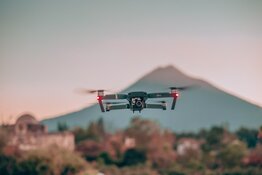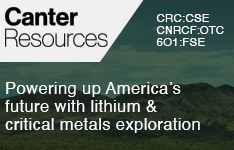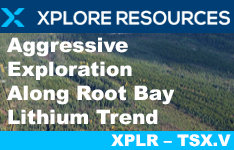Bion Environmental Technologies Inc. (BNET:OTCQB), which is focused on advanced livestock waste treatment and resource recovery technology, announced it is partnering with Stovall Ranching Companies in Montana to develop a new generation cattle feeding facility.
The partnership plans to construct a 15,000-head capacity facility at Stovall's Yellowstone Cattle Feeders in Shepherd, Montana. Cattle will be finished in barns designed for feed efficiencies and cattle welfare while being outfitted with solar generation and advanced waste treatment and resource recovery systems provided by Bion's patented closed-loop technologies.
Stovall Ranching Companies Chief Executive Officer Turk Stovall also will join Bion's Board of Directors and lead the joint venture to develop the project.
"We are excited to work with Turk and his companies to expand cattle feeding in Montana," Bion Head of Business Development Craig Scott said. "Winters here make cattle feeding especially challenging. Bion's barn-based system addresses those issues, delivers improved feed efficiencies and economics, and our advanced waste treatment will help Montana stay clean and beautiful."
In a release, Bion said the partners believe the premium quality Montana beef that will be produced there "will be the 'cleanest,' most eco-friendly finished beef in the marketplace."
The Catalyst: The 'Future of Cattle Feeding'
While some worry about the environmental effects of so-called "methane digesters" that turn methane produced by cattle waste into biofuel, Bion notes that its Gen3Tech system's "resource recovery will simultaneously minimize the facility's environmental impacts to air or water. Most of the facility's energy requirements are anticipated to be generated onsite with solar. Environmental benefits and improved resource efficiencies will be independently verified and communicated to stakeholders, and to consumers that increasingly demand eco-sustainable choices and are willing to pay for it."
According to Stovall, "We aren't focused on how beef was produced over the last 50 years; we are focused on how to produce it for the next 50 years. It is our mission to advance our production systems to be the best and at the high standards the market demands."
He said the system will produce cattle meeting some of the highest eco-friendly standards in the marketplace.
"It may well become the future of cattle feeding," said Stovall, a fifth-generation Montana rancher. "Once completed and proven, the facility can serve as a model to execute in other states and other possible locations in Montana."
Stovall Ranching Companies includes family ranches in Yellowstone County and Big Horn County, on the Crow Indian Reservation, Bion said.
Co.: Cleanest Production Possible in Beef Industry
Bion's technology treats waste from indoor finishing facilities, where cattle are grain-fed and the majority of U.S. beef is produced, reducing pollution and upcycling it into valuable fertilizer products, clean water, and renewable energy. Cleaning up the finishing facility is the lynchpin in a sustainable value chain. Bion said indoor barns, coupled with its Gen3Tech platform, represent the most advanced, efficient, and cleanest production possible for finished beef at scale.
Cattle feeders and producers can also create more value for their commodity through premium pricing by having a sustainable brand that would be backed up by Bion's technology and third-party verification, the company noted.
According to the company, about 85% of the nitrogen in livestock waste escapes to the environment as ammonia, which is an economic loss and a source of pollution as particulate air emissions, harmful algae blooms, and contaminated groundwater.
Recently, California allocated more than US$350 million to build digesters on dairy farms to capture methane. However, according to an article on Inside Climate News by Emma Foehringer Merchant and Grace van Deelen, "emerging research suggests that after the digesters process the manure, it emits ammonia, which can travel long distances to contaminate water and soil and threaten ecosystems. Communities nearby also worry that the ammonia emissions will contribute to particulate matter that is seriously dangerous to human health."
Bion's technology goes after that ammonia, Scott said. "We want that ammonia to form, but in our closed loop system," he said. "We capture and stabilize it and produce value-added byproducts from it while preventing its release to the environment where it just causes problems. We get ahead of those problems AND create new revenue sources instead."
According to an Associated Press article on June 14, California is home to about 1.7 million cows and is the country's leading dairy producer, creating the potential for a lot of methane.
"Cow burps and manure emit the potent planet-warming gas, which over a shorter period is much more powerful than carbon dioxide," authors Dorany Pineda and Terry Chea wrote.
 Streetwise Ownership Overview*
Streetwise Ownership Overview*
Bion Environmental Technologies Inc. (BNET:OTCQB)
About 120 digesters have cropped up across California over the last decade and roughly 100 more are in the pipeline, according to the report. Their numbers are expected to grow across the country since waste management practices such as digesters became eligible for funding from the Inflation Reduction Act.
There are about three times as many beef cattle in the U.S. as dairy cattle. However, there are only a handful of digesters at beef feedyards, because outdoor feedlots and their production practices don't work with a digester. Bion said its Gen3Tech system resolves those issues and opens up the larger beef industry (also with larger scale facilities) for digesters and clean fuels production.
Ownership and Share Structure
According to Reuters, nearly 22% of Bion Environmental is owned by management and insiders. President and General Counsel Mark Smith has the most out of this category at 10.07% with 5.69 million shares.
About 1.25% is with Centerpoint Corp. with 0.70 million shares. Less than 1% is held by institutions. The rest is with retail.
Bion has a market cap of US$26 million. Trading over the past 52 weeks ranged from US$0.30 per share to US$1.30.
| Want to be the first to know about interesting Technology and Agriculture investment ideas? Sign up to receive the FREE Streetwise Reports' newsletter. | Subscribe |
Important Disclosures:
- Environmental Technologies Inc. has a consulting relationship with an affiliate of Streetwise Reports, and pays a monthly consulting fee between US$8,000 and US$20,000.
- As of the date of this article, officers and/or employees of Streetwise Reports LLC (including members of their household) own securities of Bion Environmental Technologies Inc.
- Steve Sobek wrote this article for Streetwise Reports LLC and provides services to Streetwise Reports as an employee.
- This article does not constitute investment advice and is not a solicitation for any investment. Streetwise Reports does not render general or specific investment advice and the information on Streetwise Reports should not be considered a recommendation to buy or sell any security. Each reader is encouraged to consult with his or her personal financial adviser and perform their own comprehensive investment research. By opening this page, each reader accepts and agrees to Streetwise Reports' terms of use and full legal disclaimer. Streetwise Reports does not endorse or recommend the business, products, services or securities of any company.
For additional disclosures, please click here.




































